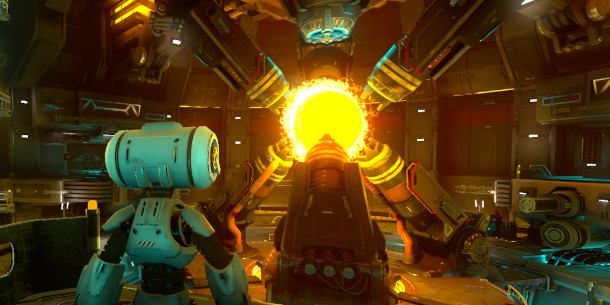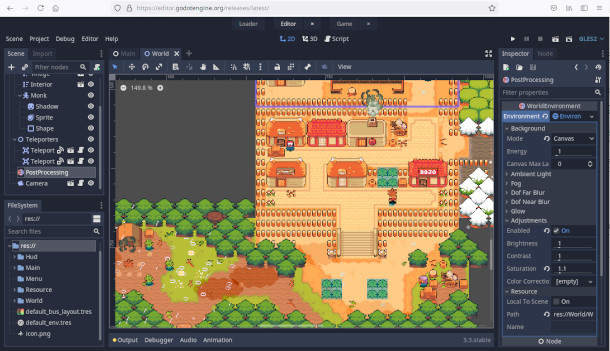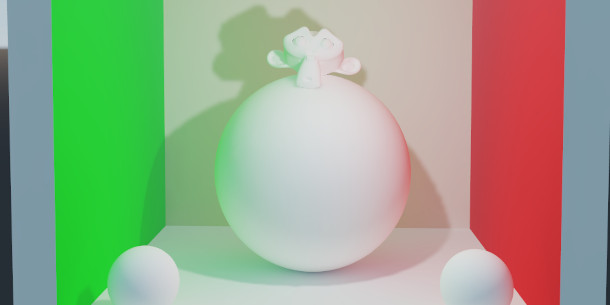Godot 3.3 ships

The Godot team has released Godot 3.3, an unexpectedly major update to the open-source game engine.
Originally planned as a minor release in the run up to Godot 4.0, version 3.3 adds a new web editor, making it possible to run the Godot Editor in a standard web browser.
Other changes include a new CPU lightmapper with support for path tracing and Open Image Denoise, a new OpenXR plugin for VR and AR content, and native support for new Apple M1 Macs.
Godot 3.3 has now taken over from version 3.2 as the long-term support release for the engine, and the team now plan further 3.x updates before Godot 4.0 officially ships.
A powerful open-source alternative to Unity for 2D and 3D titles
Originally developed in-house at Argentinian game developer Okam Studio, Godot provides an open-source alternative to Unity, and is currently being used on a range of indie and mobile games, both 2D and 3D.
Since going open-source in 2014, work on Godot has been steadily accelerating, in part thanks to funding from Mozilla, Microsoft, and most recently, grants from Epic Games and Russian game developer Kefir.
In 2019, it became the de facto open-source game engine, with the Blender Foundation removing its own game engine from Blender 2.80 and recommending Godot as a “more powerful alternative”.
From minor update to major milestone
Godot 3.3 is an unexpectedly major update, in a number of ways.
It was originally planned as Godot 3.2.4: a minor update to the stable branch of the code on the way to the long-awaited Godot 4.0, with its compatibility-breaking new Vulkan rendering backend.
However, it has now incorporated so many new features – including some originally planned for 4.0 itself – that the dev team has made it a 3.x release in its own right.
It also now replaces 3.2 as the stable long-term support version of the engine, with at least one further significant update, Godot 3.4, planned before Godot 4.0 officially ships.

New web editor lets artists develop Godot games in a web browser
One of the biggest changes in Godot 3.3 is the official release of the web editor, making it possible to run the Godot Editor in a standard web browser.
It was originally scheduled for Godot 4.0, but is now fully developed enough to be updated in parallel with the native version.
In addition, Godot’s HTML5 export system, used for publishing browser-based games, has been extended.
New features include better support for gamepads and virtual keyboards, and support for the WebXR API, making it possible to develop VR and AR games that run in compatible browsers.

New CPU lightmapper with support for proper path tracing and Open Image Denoise
For games artists, the other major change is the new CPU lightmapper, intended as a bridge between the existing lightmapper – “quickly put together” for Godot 3.0 – and the GPU lightmapper due in Godot 4.0.
Unlike its predecessor, the new lightmapper supports “proper path tracing” and Intel’s widely adopted Open Image Denoise (OIDN) denoising system, resulting in better quality lightmaps for the same baking times.
Other changes include support for baking environment lighting, lightmap texture atlassing, per-object resolution scaling, cubic filtering of lightmaps at runtime, and automatic disabling of baked lights.
Platform and pipeline changes: native M1 support, and support for OpenXR on Windows
Godot also becomes the latest CG application with native support for Apple’s new M1 processors, available in new MacBooks and Mac mini systems, and upcoming iMacs.
Other platform changes include support for the Android App Bundle format and a new iOS plugin API.
In addition, the OpenXR plugin, which can be used to develop VR games for both Oculus and SteamXR-compatible hardware, has been ported from Linux to Windows.
Pipeline changes include updates to the FBX importer that should improve support for assets exported from Maya, and support for audio files in MP3 format as well as OGG Vorbis.
Workflow and performance improvements: better support for FBX files exported from Maya
Workflow improvements include the long-awaited option to cut and paste nodes in the scene tree, both within a scene and between scenes; and proper automatic detection of external changes to a scene file.
There are also a lot of quality-of-life improvements to the 3D editor, rendering and the physics system, which you can find via the links below.
Performance improvements include structural changes that should speed up both rendering and the GodotPhysics system, and better support for multi-threading.
Availability and system requirements
Godot 3.3 is available under the MIT licence for 32-bit and 64-bit Windows and Linux, and macOS.
Read an overview of the new features in Godot 3.3 on the Godot team’s blog
Read a full list of new features in Godot 3.3 in the online changelog
